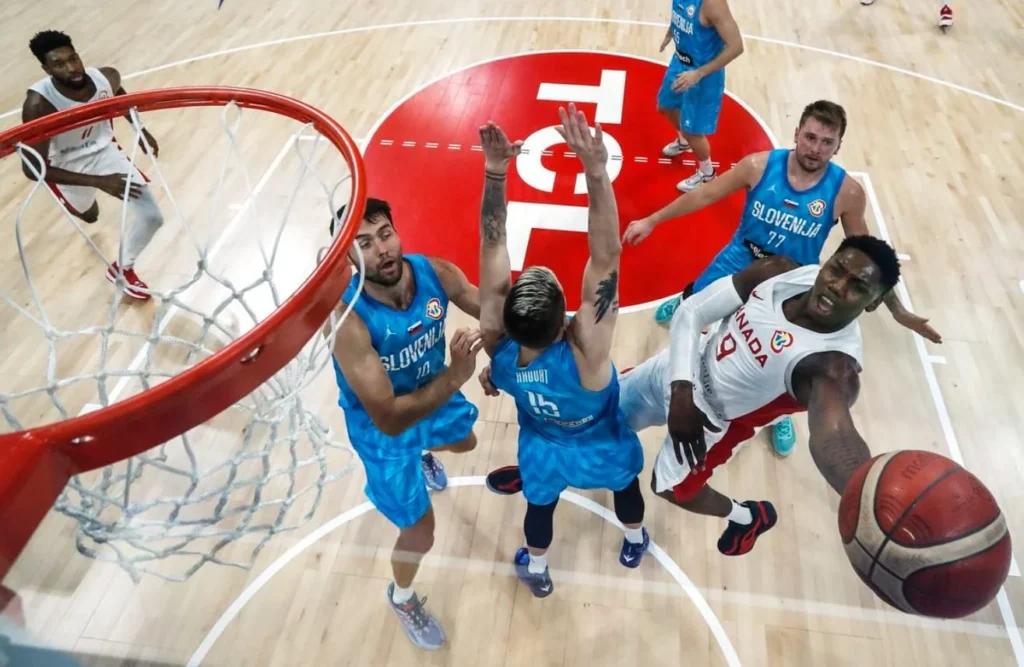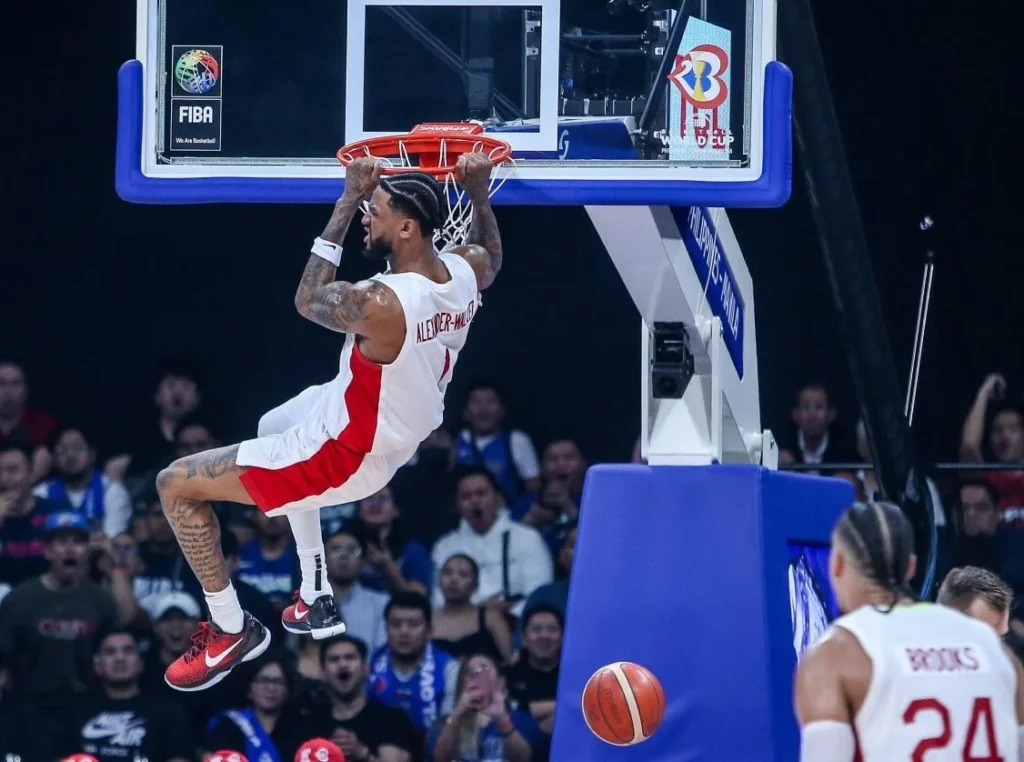
In the annals of Canadian basketball, few moments hold the weight and significance of the team’s recent advance to the FIBA World Cup semi-finals. A match against Slovenia, held in the vibrant city of Manila, was not just another game—it was a monumental test of Canada’s prowess, a symbol of their evolution on the international stage. To understand the depth of this achievement, one needs to recognize that Canada, despite its burgeoning NBA talent, had never before reached the semi-final stage in the World Cup. It wasn’t just about winning; it was about making history.
Facing them was Slovenia, a team energized by the sheer talent of Luka Dončić, a prodigious player whose on-court vision and dexterity have been turning heads across both the NBA and international circuits. But for Canada, this was a statement game. It was an opportunity to prove that they were more than just a collection of individual talents—that they were, in fact, a cohesive unit capable of taking on and overcoming the world’s elite. With each jump shot, defensive stop, and strategic play, Canada was not merely playing to win; they were playing to etch their name into the annals of FIBA history.
The Heavyweights: Canada vs. Slovenia
In their path stood Slovenia, spearheaded by basketball sensation, Luka Doncic. Even though Slovenia wasn’t considered the most formidable opponent for Canada in the tournament, the unpredictable nature of FIBA games, combined with Doncic’s on-court magic, meant that the Canadians couldn’t afford to take them lightly.
From a basketball strategist’s perspective, Slovenia had some distinct edges going into the match:
- Superiority inside the paint
- Proficiency in drawing fouls from the opposition
On the flip side, Canada’s game plan was laser-focused and meticulously crafted:
- Counteract Luka’s influence on the game
- Fortify their defense within the paint
- Navigate the game while minimizing foul-related setbacks
- Leverage Shai Gilgeous-Alexander’s hot streak
- Launch with an assertive offensive outset.
When the dust settled post-game, it was evident: Canada’s execution of their game plan was near flawless.
First Half: A Neck-to-Neck Affair
The initial half of the game was tantalizingly close. The scoreboard read 50-50 when halftime was signaled, a testament to the evenly matched performance.
Shai Gilgeous-Alexander (often referred to as SGA) was in blazing form from the get-go, rapidly accumulating eight points for Canada. On the other hand, Slovenia, known for their three-point plays, began with a commendable 9-13 record from the arc.
Second Half: A Test of Nerves
As the game progressed, the atmosphere became electric. The second half was charged with tension as fouls dominated the narrative. An alarming situation arose for Canada when three of their key players – Dillon Brooks, Lu Dort, and Dwight Powell – each accumulated three fouls.
However, demonstrating their championship caliber, Canada turned the tables in the third quarter. Historically, the team had been performing well in the third quarter throughout the tournament, and this game was no exception. They outperformed Slovenia 30-21 during this phase, even stretching their lead to 12 points at one juncture.
But in basketball, a 10-point lead can be ephemeral. The fourth quarter was nothing short of a rollercoaster. In a turn of events, both teams faced significant losses: Dillon Brooks from Canada and Luka Doncic from Slovenia were ejected.
“These days a 10-point lead isn’t much of a lead in basketball.”
With about eight minutes left on the clock, Slovenia lagged by roughly 10 points. Even without their star player Doncic, Slovenia posed a threat. Slovenian players, Klemen Prepelic and Zoran Dragic, intensified the pressure on Canada. But then, in another twist, Prepelic got ejected. Despite a gallant effort by Zoran Dragic, Slovenia couldn’t turn the tide against Canada.
Scoreline Analysis
| Team | Points | Top Scorers |
| Canada | 100 | Shai Gilgeous-Alexander (31 points) |
| Slovenia | 89 | Not specified |
Canada’s victory by 11 points wasn’t just a statistical win. It paved their way to the semi-final and assured them a spot in the top four of the World Cup.

The standout performances for Canada were:
- Shai Gilgeous-Alexander: With a dazzling 31 points, 10 rebounds, and an assist, his 8-12 shooting from the field (a commendable 66%) was a significant highlight.
- RJ Barrett: Contributed significantly with 24 points, nine rebounds, and an assist.
- Nickeil Alexander-Walker and Dillon Brooks: Both chipped in with 14 points and three rebounds each. However, it was Brooks’ defensive prowess against Doncic that garnered appreciation.
“FIBA hoops don’t care WHO you are — they’ll call fouls on you and even eject you.”
This particular game shed light on the contrasting dynamics between FIBA and NBA games. FIBA matches have a reputation for being more aggressive, with lower scoring due to increased physical defense. The five-foul rule in FIBA can instantly alter the game’s rhythm. This unpredictability and raw energy make FIBA tournaments exhilarating to watch.
Looking Ahead
Canada’s journey doesn’t end here. Their next challenge lies in the semi-final against a formidable Serbian side, who recently displayed dominance against Lithuania. The best-case scenario for Canada would be advancing to the finals for a shot at gold. In contrast, the least favorable outcome would see them vying for the bronze medal.
Regardless of the outcome, Canada’s historic World Cup run is already etched in history. Their commitment and passion have been evident, and for fans, the early morning fixtures are a small price to pay to witness their nation’s remarkable journey.
Canada’s semi-final clash against Serbia is scheduled for 4:45 AM on Friday. The dedication of Canadian basketball enthusiasts will be tested, but as history has shown, true fans always rise to the occasion.































